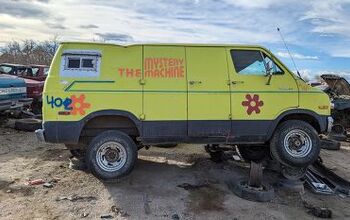Hackers Digitally Invade Tesla Model 3, Winning One

Computer experts successfully broke a Tesla Model 3 at the “Pwn2Own” hacking event held recently in Vancouver. However, Tesla Motors isn’t biting its nails over someone finding vulnerabilities in its system, as it was privy to the plan. The automaker has operated a “bug bounty program” for the past 4 years, rewarding anyone who can pull it off — going so far as saying it wouldn’t void a vehicle’s warranty if a customer successfully hacked it in “good faith.” It even offered a maximum reward of $15,000 (USD) last year.
Meanwhile, the group that managed to break the Model 3 in Canada this month received more than a sack of cash from the automaker.
In addition to a corporate blessing for some top-shelf, white-hat hacking, Tesla provided the group with a car of their own, according to Electrek:
Amat Cama and Richard Zhu of team Fluoroacetate targeted the infotainment system on the Tesla Model 3 and used “a JIT bug in the renderer” to manage to take control of the system.
For exposing the vulnerabilities and giving the automaker the opportunity to improve its software security, Tesla is giving them the Model 3.
It’s adding to several more prizes won by team Fluoroacetate during the competition.
The hack job was apparently no cakewalk. Electrek reports that the team only managed to find a functional exploit on the last day of competition, though they were quite busy for the duration — often working on other challenges.
“We develop our cars with the highest standards of safety in every respect, and our work with the security research community is invaluable to us,” said David Lau, Vice President of Vehicle Software at Tesla, leading up to the event. “Since launching our bug bounty program in 2014 – the first to include a connected consumer vehicle– we have continuously increased our investments into partnerships with security researchers to ensure that all Tesla owners constantly benefit from the brightest minds in the community.”
He added, “We look forward to learning about, and rewarding, great work in Pwn2Own so that we can continue to improve our products and our approach to designing inherently secure systems.”
Unlike its beta-tested Autopilot system, Tesla’s approach to digital security is admirable and decidedly wise. Rather than penalize individuals who break its system, it’s been rewarding them — giving hackers an incentive to work with the company, rather than against it. Back in 2016, Keen Security Labs remotely hacked the Tesla Model S through a malicious wifi hotspot. It identified the vulnerability and went to Tesla first, who promptly fixed the exploit. The automaker has reportedly given away hundreds of thousands of dollars in rewards to hackers who’ve exposed vulnerabilities in its systems.
[Image: Tesla]

A staunch consumer advocate tracking industry trends and regulation. Before joining TTAC, Matt spent a decade working for marketing and research firms based in NYC. Clients included several of the world’s largest automakers, global tire brands, and aftermarket part suppliers. Dissatisfied with the corporate world and resentful of having to wear suits everyday, he pivoted to writing about cars. Since then, that man has become an ardent supporter of the right-to-repair movement, been interviewed on the auto industry by national radio broadcasts, driven more rental cars than anyone ever should, participated in amateur rallying events, and received the requisite minimum training as sanctioned by the SCCA. Handy with a wrench, Matt grew up surrounded by Detroit auto workers and managed to get a pizza delivery job before he was legally eligible. He later found himself driving box trucks through Manhattan, guaranteeing future sympathy for actual truckers. He continues to conduct research pertaining to the automotive sector as an independent contractor and has since moved back to his native Michigan, closer to where the cars are born. A contrarian, Matt claims to prefer understeer — stating that front and all-wheel drive vehicles cater best to his driving style.
More by Matt Posky
Latest Car Reviews
Read moreLatest Product Reviews
Read moreRecent Comments
- Jeff I do think this is a good thing. Teaching salespeople how to interact with the customer and teaching them some of the features and technical stuff of the vehicles is important.
- MKizzy If Tesla stops maintaining and expanding the Superchargers at current levels, imagine the chaos as more EV owners with high expectations visit crowded and no longer reliable Superchargers.It feels like at this point, Musk is nearly bored enough with Tesla and EVs in general to literally take his ball and going home.
- Incog99 I bought a brand new 4 on the floor 240SX coupe in 1989 in pearl green. I drove it almost 200k miles, put in a killer sound system and never wish I sold it. I graduated to an Infiniti Q45 next and that tank was amazing.
- CanadaCraig As an aside... you are so incredibly vulnerable as you're sitting there WAITING for you EV to charge. It freaks me out.
- Wjtinfwb My local Ford dealer would be better served if the entire facility was AI. At least AI won't be openly hostile and confrontational to your basic requests when making or servicing you 50k plus investment and maybe would return a phone call or two.


































Comments
Join the conversation
Very wise approach from Tesla. It cost them less than hiring expert as a consultant or permanent position.
I have discovered a vulnerability in the paint adhesion of my mid-90's GM pickup - do I get a free truck?